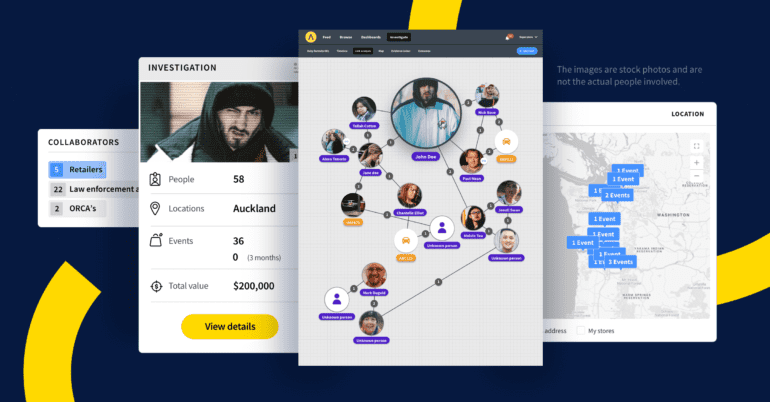TL;DR:
- Australian retailers, including Woolworths and Bunnings, are utilizing AI software called Auror to catch repeat shoplifters.
- Auror’s image matching capability aids in identifying individuals involved in multiple offenses, enabling real-time alerts to security staff.
- Unlike live facial recognition, Auror relies on existing captured data, ensuring privacy compliance.
- Privacy concerns persist due to lagging privacy laws and the potential misuse of sensitive data combinations by retailers.
- Auror facilitates collaboration between retailers and law enforcement, streamlining evidence provision for investigations.
- AI integration presents an opportunity to combat organized retail crime and save costs for retailers.
- While privacy protection remains the responsibility of retailers, regulatory advancements are necessary.
- The market implications involve the continuous evolution of AI in crime prevention and investigation, emphasizing the need for privacy-conscious practices.
Main AI News:
Artificial intelligence (AI) has seamlessly integrated into our daily lives, permeating various aspects of the modern world, oftentimes operating unnoticed. While popular AI platforms like ChatGPT, Siri, and Alexa enjoy wide recognition, prominent Australian retailers such as Woolworths and Bunnings have also embraced AI in the form of cutting-edge software known as Auror. Auror, primarily employed by retail establishments, serves as a powerful tool in apprehending shoplifters.
According to Phil Thomson, the CEO of Auror, retailers can choose from an array of tools offered by the software. One of its remarkable capabilities involves matching uploaded images with those connected to reported crimes. By cross-referencing these visuals, the platform determines if the same individual is responsible for multiple offenses. This robust AI system can even detect ongoing criminal activity and promptly notify security personnel, ensuring real-time responses. Thomson emphasizes that Auror has no impact on regular customers who remain unaffected by its operations.
In recent years, retailers have actively explored the potential of AI and facial recognition technology. Currently, Bunnings and Kmart are under investigation by Australia’s privacy watchdog for their use of a facial recognition software application. However, Auror stands apart by employing a distinctive approach. Thomson clarifies that their software does not employ live facial recognition techniques or draw information from the internet. Instead, it relies solely on existing data captured during specific criminal incidents within retail stores.
Despite the benefits, Nicholas Davis, an expert in emerging technologies from the University of Technology Sydney, raises concerns about privacy issues related to AI adoption by retailers. Davis highlights the lack of comprehensive privacy laws, particularly when it comes to sensitive data combinations such as license plate information, purchase history, and aisle visits. Retailers frequently exploit such information for marketing purposes, but divulging these details externally could potentially breach the Privacy Act.
Ultimately, the responsibility for safeguarding privacy lies with the retailers themselves rather than the software providers. Professor Davis points out that compared to Europe and other countries, Australia lags approximately two decades behind in terms of consumer rights regarding private information. To address this disparity, retailers must prioritize privacy protection and ensure compliance with evolving privacy regulations.
In addition to retail theft, organized retail crime, including both large-scale operations and petty shoplifting, poses a significant economic threat, amounting to millions of dollars daily. Criminal syndicates often collaborate across multiple retailers, targeting specific items for illicit resale. Auror’s capabilities present an opportunity for cooperation between major retailers such as Coles and Woolworths, enabling them to collectively combat shoplifters by leveraging AI across a broader data set.
According to Phil Thomson, Auror enables retailers to capture data that is not new but simplifies the identification of repeat offenders. The software’s collaboration with law enforcement agencies facilitates the provision of robust evidence for investigators. In 2020, the Australian Federal Police faced controversy after admitting to trialing the contentious software, Clearview AI, which scrapes images of individuals from social media and other online sources. The subsequent investigation found that the AFP had failed to meet privacy obligations, and the involved US company had infringed upon Australians’ privacy rights.
However, the ACT’s Chief Police Officer, Neil Gaughan, explains that Auror operates differently, emphasizing that it serves as a substitute for conventional methods of collecting CCTV footage from businesses. Gaughan asserts that the AI and facial recognition capabilities are not utilized by the police, and their involvement is limited to accessing read-only information.
While Auror currently caters to law enforcement needs, Deputy Commissioner Gaughan anticipates an evolving landscape. He predicts that facial recognition technology will eventually play a pivotal role in identifying individuals involved in serious crimes. Gaughan draws a parallel to the initial skepticism surrounding the use of DNA evidence, which is now widely accepted by courts when properly administered.
Conclusion:
The adoption of AI software like Auror by Australian retailers and law enforcement signifies a transformative step in combatting shoplifting and organized retail crime. While providing efficient tools for identifying repeat offenders, privacy concerns and regulatory gaps demand attention. Retailers must prioritize privacy protection and compliance to ensure consumer trust. As the market continues to embrace AI technologies, the balance between security measures and individual privacy rights will shape the future of the retail industry.

